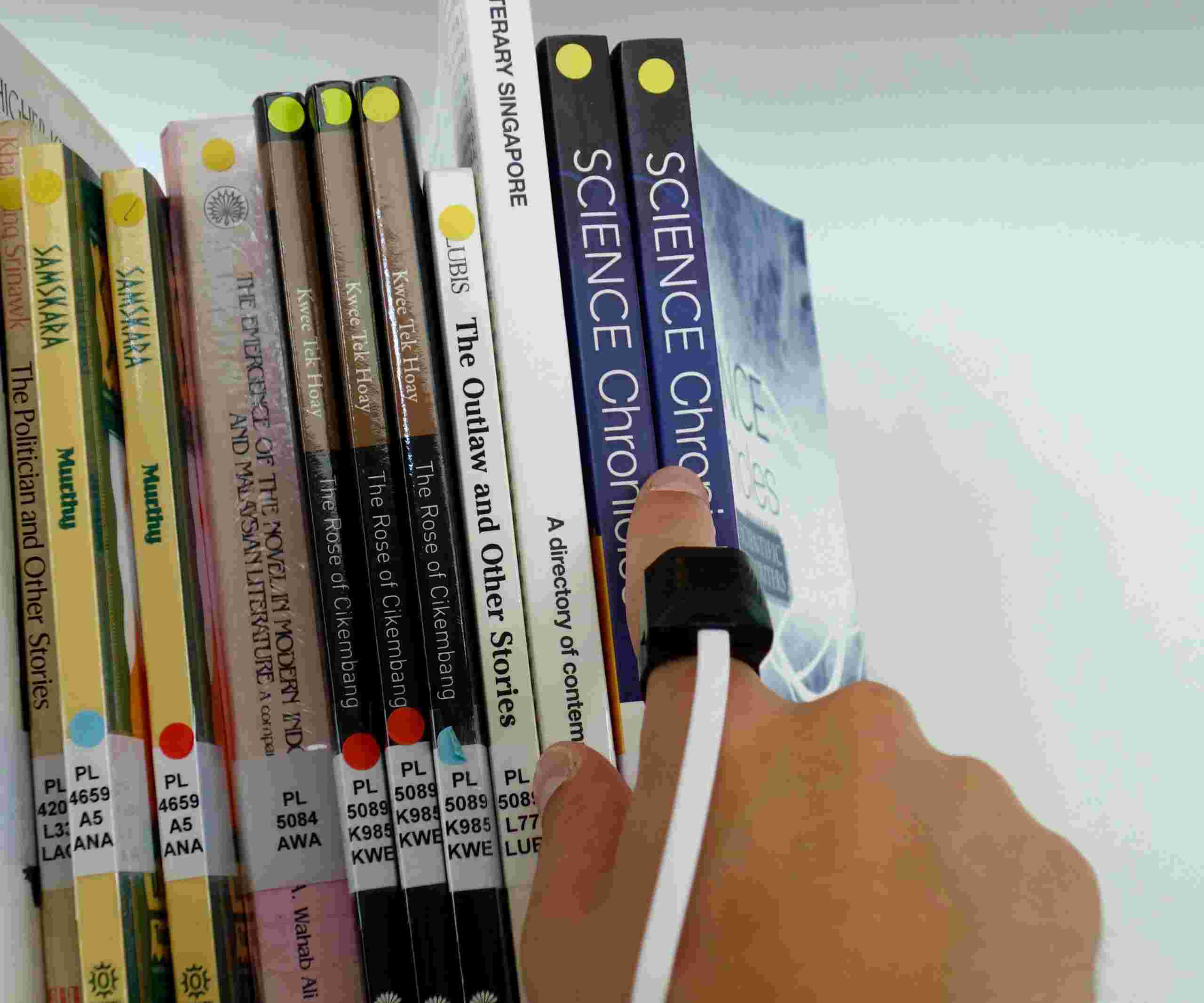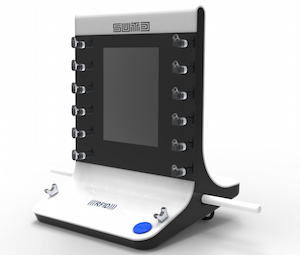
Priyashri Sridhar
PhD Candidate
Priya is a PhD Candidate at SUTD- Augmented Human Lab. Her work lies at the intersection of Cognitive Psychology and Human Computer Interaction. Her strengths and experience lie in designing user studies and adopting a range of qualitative, quantitative and biosensing research methods to gain insights on how people across ages interact with technologies. She has a background in behavioural sciences and knowledge of statistics and the principles of experiment design. In addition to user research for various technologies, she explores learning behaviour in children and young adults for various concepts with a particular interest in STEM learning and learning/ engagement through non-traditional media like Virtual Reality. Her approaches triangulate physiological, behavioural and observational data to gain insights into the cognitive, affective and social states of the user across ages and in various contexts such as play, social media and learning. Her interests also include understanding classrooms, pedagogies and designing learning interfaces that enhance user agency across environments. She is an ethnographer at heart and is passionate about understanding the user to identify opportunities for innovation.
She is also an aspiring polymath and loves meeting people and bouncing ideas. The key to her heart is a lengthy conversation over good coffee.
Contact
E-Mail: priya@ahlab.org (preferred) OR priyashri@mymail.sutd.edu.sg
Location: SUTD-MIT International DesignCentre, Building 3, Level 3 - DARES Lab
Publications
Striving for Authentic and Sustained Technology Use in the Classroom: Lessons Learned from a Longitudinal Evaluation of a Sensor-Based Science Education Platform
Chua, Y., Cooray, S., Cortes, J.P.F., Denny, P., Dupuch, S., Garbett, D.L., Nassani, A., Cao, J., Qiao, H., Reis, A, Reis, D., Scholl, P.M., Sridhar, P.K., Suriyaarachchi, H., Taimana, F., Tang, V., Weerasinghe, C., Wen, E., Wu, M., Wu, Q., Zhang, H., Nanayakkara, S.C. 2023. Striving for Authentic and Sustained Technology Use In the Classroom: Lessons Learned from a Longitudinal Evaluation of a Sensor-based Science Education Platform. International Journal of Human–Computer Interaction (IJHCI).
Progression of Cognitive-Affective States During Learning in Kindergarteners: Bringing Together Physiological, Observational and Performance Data
Sridhar, P.K. and Nanayakkara, S.C., 2020. Progression of Cognitive-Affective States During Learning in Kindergarteners: Bringing Together Physiological, Observational and Performance Data. Education Sciences, 10(7), p.177.
Going beyond performance scores: Understanding cognitive-affective states in Kindergarteners and application of framework in classrooms
Sridhar, P. K., Chan, S. W. T., Chua, Y., Quin, Y. W. and Nanayakkara, S. C., 2019. Going beyond performance scores: Understanding cognitive-affective states in Kindergarteners and application of framework in classrooms. International Journal of Child-Computer Interaction, 21, pp.37-53.
Evaluating IVR in Primary School Classrooms
Chua, Y., Sridhar, P.K., Zhang, H., Dissanayake, V. and Nanayakkara, S.C., 2019, October. Evaluating IVR in Primary School Classrooms. In 2019 IEEE International Symposium on Mixed and Augmented Reality Adjunct (ISMAR-Adjunct) (pp. 169-174). IEEE.
Triangulation of Physiological, Behavioural and Observational Data offers better insights into cognitive-emotional states in learning
Sridhar, P.K., Quin, Y.W., and Nanayakkara, S.C., 2018. Triangulation of Physiological, Behavioural and Observational Data offers better insights into cognitive-emotional states in learning. Presented in the Annual Convention of Association for Psychological Science. San Francisco.
Going beyond performance scores: understanding cognitive-affective states in kindergarteners
Sridhar, P. K., Chan, S. W. T. and Nanayakkara, S.C., 2018. Going beyond performance scores: understanding cognitive-affective states in kindergarteners. In Proceedings of the 17th ACM Conference on Interaction Design and Children (pp. 253-265). ACM.
Development of a Triangulated Framework Understand Cognitive-Emotional States during Learning in Children
Sridhar, P.K., Nanayakkara S.C., 2018. Development of a Triangulated Framework Understand Cognitive-Emotional States during Learning in Children. In Proceedings of International Conference of Learning Sciences and Early Childhood Education.
Towards Understanding of Play with Augmented Toys
Sridhar, P.K., Nanayakkara, S.C. and Huber, J., 2017, March. Towards understanding of play with augmented toys. In Proceedings of the 8th Augmented Human International Conference (pp. 1-4).
Working with physiotherapists: Lessons learned from project SHRUG.
Shridhar, P. and Nanayakkara, S.C., Working with physiotherapists: Lessons learned from project shrug. In Workshop paper in Annual Meeting of the Australian Special Interest Group for Computer Human Interaction (OzCHI’16), NY, USA.
Towards One-Pixel-Displays for Sound Information Visualization
Sridhar, P.K., Petry, B., Pakianathan, P.V., Kartolo, A.S. and Nanayakkara, S.C., 2016, November. Towards one-pixel-displays for sound information visualization. In Proceedings of the 28th Australian Conference on Computer-Human Interaction (pp. 91-95).
Towards Development and Evaluation of Tangible Interfaces that Support Learning in Children.
Sridhar, P.K., Nanayakkara, S.C., 2016. Towards Development and Evaluation of Tangible Interfaces that Support Learning in Children. In Proceedings of Annual Meeting of the Australian Special Interest Group for Computer Human Interaction (OzCHI '16). ACM, New York, NY, USA.
PostBits: using contextual locations for embedding cloud information in the home
Pablo, J., Fernando, P., Sridhar, P., Withana, A., Nanayakkara, S.C., Steimle, J. and Maes, P., 2016. PostBits: using contextual locations for embedding cloud information in the home. Personal and Ubiquitous Computing, 20(6), pp.1001-1014.
Neural changes induced by behavioural stuttering therapies in persons with stuttering
Priyashri, S., Mallik, J., Geetha, Y.V. (2012, July). Neural changes induced by behavioural stuttering therapies in persons with stuttering – Accepted for presentation in the 7th World Congress on Fluency Disorders, Tours, France.
Dysfluency Characteristics in Persons with Dementia
Sridhar P.K., Mallik, J. and Yelimeli, G., 2011, Dysfluency Characteristics in Persons with Dementia, Presented at 9th Oxford Elseiver Dysfluency Conference.
Clinical Implications Of Neuroimaging Studies On Stuttering: A Review
Sridhar, P., Mallik, J., and Yelimeli, G., 2011, Clinical Implications Of Neuroimaging Studies On Stuttering: A Review, Presented at 9th Oxford Elseiver Dysfluency Conference.
Effect of culture on non-verbal communication
Sridhar, P.K., Krishnan, G. and Priyadarshi, B., 2010, Effect of culture on non-verbal communication, South Asian Conference for Linguistics.
Effect of Speaking Rate on Nasality
Sridhar, P.K., Ramprasad, S., and Pushpavathi, 2008, Effect of Speaking Rate on Nasality, International Frontiers of Speech and Music.
Effect of Hearing Loss on Cognition
Sridhar P.K., and Vinay, Effect of Hearing Loss on Cognition, 2008, Indian Speech and Hearing Association Conference.
Comparison of Attitudes of Mothers and Fathers of Typically Developing Children with those of Children with Mental Retardation and Hearing Impairment
Sridhar P.K., and Rajanna, M., 2009, Comparison of Attitudes of Mothers and Fathers of Typically Developing Children with those of Children with Mental Retardation and Hearing Impairment, National Science Women’s Congress.





